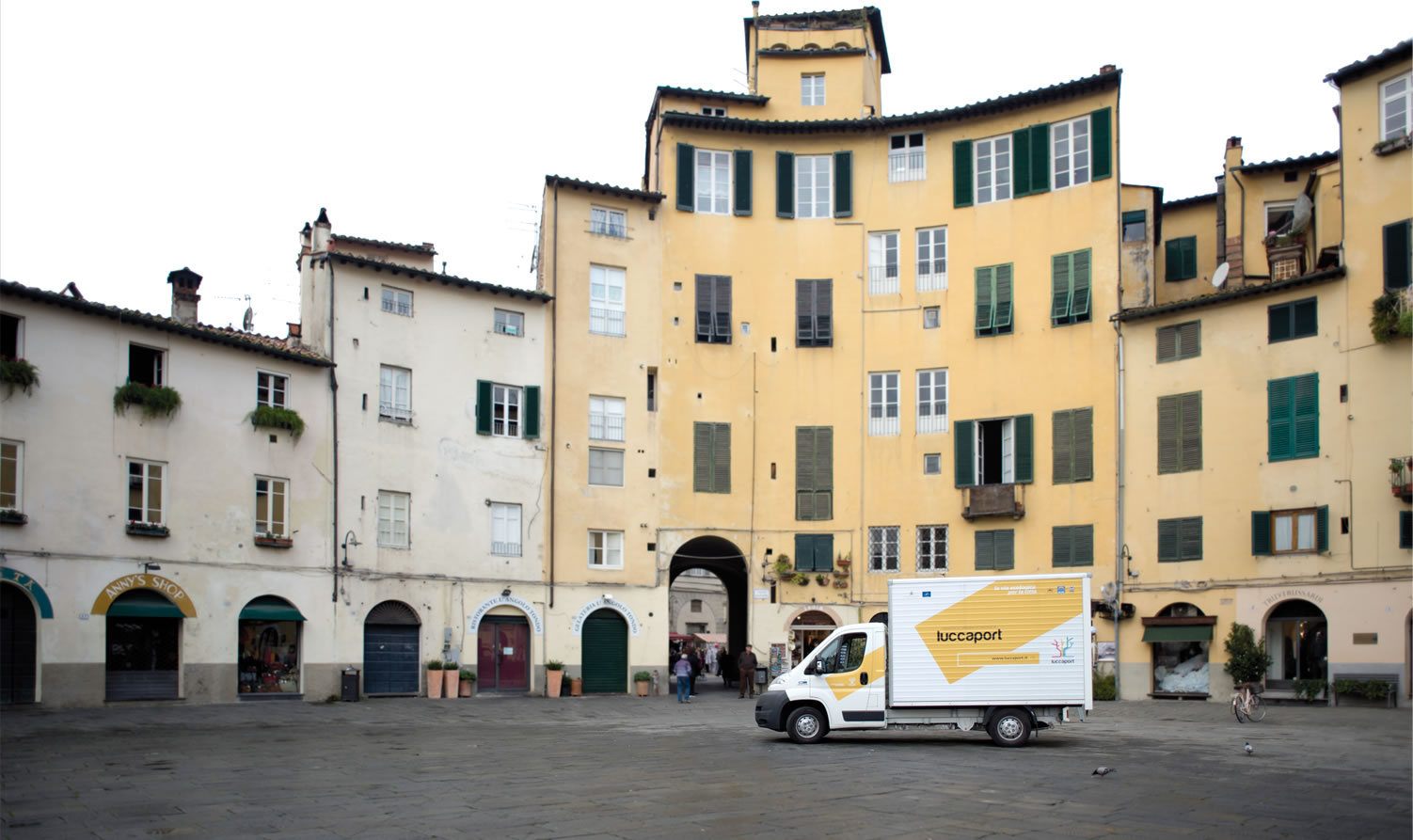for the promotion of the culture of sustainable city logistics.
To promote sustainable city logistics
The Logical Town Association promotes sustainable city logistics models in order to reduce the environmental and social impact of freight distribution in the urban centres, to improve urban environment and citizen’s quality of life.
The Logical Town Association aims to collaborate with local Authorities in order to develop smart urban mobility plans and to optimize city logistics operations in small-medium sized towns using sustainable approaches and looking at environmental, economic and social aspects.
Moreover, the Association aims to disseminate and exchange knowledge about experiences and operational models in Europe becoming a permanent centre for dissemination, promotion and experimentation about sustainable city logistics in Europe.

Why the association
for sustainable city logistics?
European small- and mid-sized historic towns are increasingly facing the effects of freight distribution in the city centres aiming to improve the efficiency of city logistics and to reduce the impact on urban environment. In fact, freight transportation and city goods distribution, together with private traffic, are known factors of energy consumption and environmental degradation in European urban centres.
Recent studies show that freight transport in urban European areas counts over 30% of the total freight transport in tons/km, it takes up 20% of the route network (equivalent vehicles) and produces 60% of the total particulate emissions. About 70-80% of the light commercial vehicles operate in urban areas producing 40% of air pollution and 40% of costs resulting from traffic congestion. Since over 70% of the European population lives in urban areas, urban freight transport, as a main component of traffic and motorised transport, has therefore significant health impacts.
Based on gathered evidence, there is a growing consensus on the view that more sustainable urban freight operations and significant benefits in terms of energy efficiency can be achieved by an appropriate mix of different measures such as: Urban Consolidation Centres, optimised urban freight transportation and delivery plans, clean vehicles and low emission technologies, restrictions and public incentive policies, last mile and value added services, integration of city logistics processes within the overall management of urban mobility. Further to this, an even stronger opportunity for a cleaner urban logistics system is offered by proper use of the latest “green vehicle” technologies. Whilst efforts and city logistics innovation projects have been undertaken in European capitals and major cities (like e.g. Barcelona, Berlin, London, Paris, Stockholm, etc.) smaller towns have often bigger barriers to overcome (e.g. shortage of resources, adequate skills, organisational structures, institutional backing, etc…) to be able to effectively embrace innovation, adopt and implement appropriate plans and measures towards sustainable city logistics. This is a relevant issue significantly limiting the widespread adoption of energy efficient urban freight operations in Europe. Indeed, small and mid-sized cities represent a major component of the EU prevailing urbanised structure and often have additional constraints and difficulties related to their specific territorial, social and economic characteristics (e.g. presence of an historic centre, difficult mobility and freight distribution flows, higher impacts of environmental pollution on citizens and quality of life, etc.) and yet show increasing demand of effective measures and large potentials for improvements of energy efficiency and sustainability of logistics processes and freight flows in their urban centres.
Logical Town Association: first steps toward a virtuous network for sustainable city logistics
The Logical Town Association is led by the Mayor of the Municipality of Lucca and aims to join European small and mid sized historic towns to promote sustainable city logistics.
The roots of Logical Town Association are to found in the past experiences gained by the founding members with the participation in the last decade to several European projects under different Programmes (from R&D framework and regional cooperation to targeted programmes on environment and energy efficiency) as well as in national initiatives. Trough out the years the association members have managed to gain and consolidate a solid experience on the various aspects and issues composing urban logistics planning and adoption of greener solutions suitable for the characteristics and requirements of different European Towns (relationships with urban mobility plan, legal and administrative framework, service schemes and models, organization and operation, infrastructure and green fleet, technology and systems, economic partnerships and role of the city authority, etc.). Moreover the constitution of Logical Town Association is the result of the action carried out by the European ENCLOSE project - funded by the Intelligent Energy Europe currently led by some of the founding members of the Association - by demonstrating and assessing feasible and sustainable solutions for European small-/mid-size historic towns in order to achieve a relevant reduction of energy consumptions and significant behaviour changes of urban freight distribution stakeholders and operators.

No front page content has been created yet.
